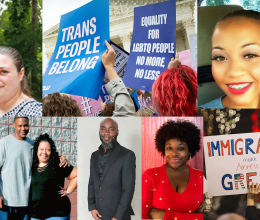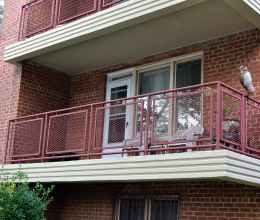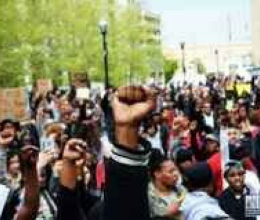
Learn more about the Thompson v HUD lawsuit and the Baltimore Housing Mobility Program.
The Baltimore Regional Housing Campaign (BRHC) is pleased to support the settlement of the long-running fair housing lawsuit, Thompson v. HUD at a hearing at the U.S. District Court of Maryland today. For coalition members, the most important aspect of the settlement is the continuation of the successful Baltimore Housing Mobility Program, which was launched nearly a decade ago as outgrowth of the Thompson case.
[Click here to download a PDF of this Press Statement.]
"This settlement is great news for the greater Baltimore region, because it continues the successful Baltimore Housing Mobility Program, which since 2003 has been connecting families to good jobs and schools in communities that have opportunities," said Mel Freeman, who submitted comments to the court today. Mr. Freeman is the Executive Director of the Citizens Planning and Housing Association, Inc., a founding member of the Baltimore Regional Housing Campaign. "Some of the keys to the program's success include budget and financial education, orientation to new communities and on-going support for two years, and linkages to employment and transportation assistance. It's about the family as a whole, not just their housing needs."
Since 2003, the program has provided low-income families with new housing choices and greater mobility throughout the Baltimore region. Through the program over 1,800 families now live in quality housing in mixed-income neighborhoods with low poverty rates, quality schools and access to employment and increased quality of life throughout the region.
"This program is just one part, but an important part, of restoring some balance to our housing market," said Patrick Maier, Executive Director of the Innovative Housing Institute and a national expert on inclusionary housing. "Workers who keep our communities going find that the supply of housing that's available to them is further and further from where the new jobs are growing. It ought to be possible for the full spectrum of workers - including those who drive the school bus, care for the elderly, stock the shelves at the grocery store, provide security at the office complex - to live in the communities where they work. These are the people at the heart of the Baltimore Housing Mobility Program."
The BRHC published a detailed study of the Baltimore mobility program in October 2009, along with the Poverty & Race Research Action Council in DC. The study, "New Homes New Neighborhoods, New Schools", reported that participants in the Program list schools, safety, less crime and drugs, friendly neighbors, and a mix of different races and cultures as the most positive features of their new neighborhood.
Recently, national attention has been focused on health improvements experienced by participants in the program and their children. Many parents who were accustomed to frequent trips to the emergency room and missed school days due to a child's asthma attacks, report dramatic improvements in their children's health when they moved to neighborhoods with more open space and lower rates of childhood asthma. This anecdotal evidence is supported by surveys in which 63% of parents who had been participating in the program for three years or more and were living in a high opportunity community said their children's health has improved. More than half of adult participants similarly reported health improvements.
"The settlement is about justice for the families involved, but more broadly it is part of the task of ensuring a level playing field for all Americans. It is about dismantling barriers to opportunity that hold back the economy and prosperity of our region," said J. Howard Henderson, President & CEO of the Greater Baltimore Urban League, another founding member of the Baltimore Regional Housing Campaign. The Urban League provided employment training to a pilot group of families in the Baltimore Housing Mobility Program. "We saw first hand that these families are working toward the same things we all want - a good place to raise their children and a better job, hopefully one with a career path."
"We all have an interest in encouraging families who want to move up and live in growing communities where they can work, educate their children, and make a positive contribution," said Rev. Alan Traher, co-chair of BRIDGE an ecumenical group that is part of the Baltimore Regional Housing Campaign, "Our congregations stand ready to act as a neighbor to those families."

